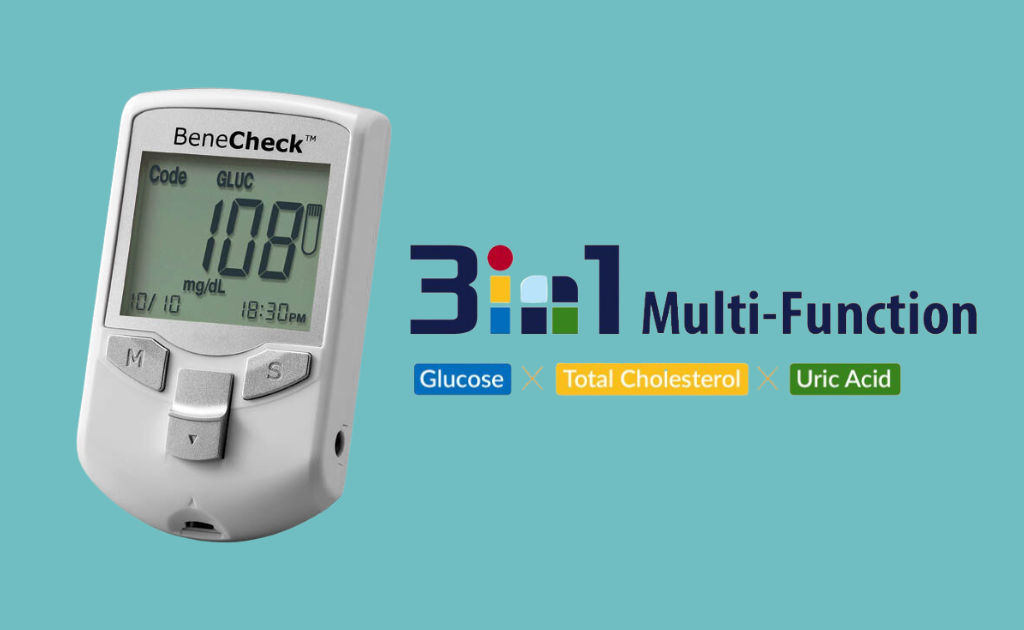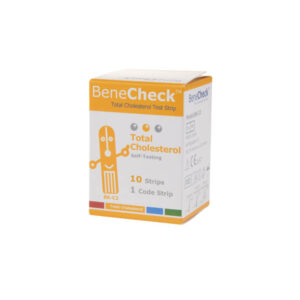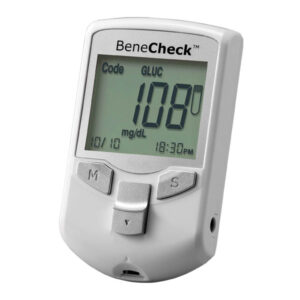- 0508 966 622
- help@zoompharmacy.co.nz
- Mon - Fri: 8:30 - 16:00
At-home blood tests have been available for some time, however they have never been more relevant for Kiwis who want to stay informed about their health and wellbeing. If you are worried about Cholesterol, Gout, and Diabetes you may find peace of mind through testing at-home. As it’s becoming increasingly difficult to regularly see your doctor, these tools remove many of the barriers and empower you to monitor and proactively manage your health.
In this article we will look at why it’s important to monitor your uric acid, cholesterol, and glucose levels.

Uric acid is a waste product produced during the breakdown of chemicals called purines found in certain foods and drinks. Here are some examples of food and drinks with a high purine content: liver, anchovies, shellfish, alcohol (beer and wine), and dried beans. Most uric acid dissolves in blood, is then filtered through the kidneys, and passed when you urinate.
However, if your body is producing elevated levels of uric acid, or if your kidneys are not able to filter enough of it from your body then you may develop a condition called hyperuricemia. Hyperuricemia is primarily associated with gout, a condition where crystals of uric acid form in the joints causing painful inflammation. High uric acid levels can also lead to kidney stones.
If you are worried about your risk of gout or kidney stones, testing your uric acid levels is a great step to take as it is a major risk factor. Testing of uric acid levels is used to identify individuals at risk of gout, enabling them to take preventive measures. Monitoring uric acid levels can also help in the identification of kidney disease, allowing for timely intervention.
Cholesterol is a type of fat that is carried in your bloodstream around your body. It is essential for the body’s functioning and is found in all the body’s cells. There are two types of cholesterol in your body. Low-density lipoprotein (LDL) and high-density lipoprotein (HDL). LDL is commonly known as ‘bad’ cholesterol and HDL is known as the ‘good’ cholesterol.
High cholesterol specifically LDL often has no noticeable symptoms but can increase your risk of suffering a serious medical event. This is caused when excess amounts of LDL build up on the walls of the arteries, forming atherosclerotic plaques. These plaques narrow the arteries and make them hard, leading to blockages that can prevent blood flow to important organs. You often don’t know about its presence until you have a heart attack, or stroke.
As high cholesterol has no telltale symptoms, the only way to make informed decisions on your cholesterol levels is to test. Monitoring your cholesterol levels helps you assess your heart health and make necessary lifestyle changes to lower your risk of cardiovascular disease.
Blood glucose or blood sugar is the primary source of energy for you body. When you eat your body breaks down most of your food into glucose and releases it into your bloodstream. When your glucose levels go up, it signals your pancreas to produce insulin, a hormone that helps your body get glucose into your cells to be used for energy or to be stored as fat for later use.
For a variety of reasons, it’s possible for your pancreas to not work as it should. If your pancreas is not producing enough insulin (or any at all), or your body doesn’t use insulin correctly then glucose will stay in your blood and not reach your cells. This leads to an elevated blood glucose level, which can lead to serious health complications. This disease is commonly known as diabetes.
Regular glucose testing can help identify prediabetes or diabetes at an early stage for those at risk of developing diabetes. This can enable you to take preventative measures through lifestyle changes like dieting, and exercise. For people with diabetes, blood glucose testing is an important tool to help them manage diabetes.
At-home blood tests are a powerful tool to empower people to make informed decisions about their health – providing personalised insights about their health which they can take to their healthcare provider, use to take preventative action, and make changes that lower their risk for certain diseases or health conditions.
At home tests are convenient. They remove the many barriers’ people face while trying to organise appointments with healthcare providers for tests. This makes regular testing far more realistic, a massive advantage for those who want to ensure timely intervention of health issues like gout, heart disease, or diabetes. They are a cost-effective option when taking appointment cost, fuel, and time off work into consideration.







